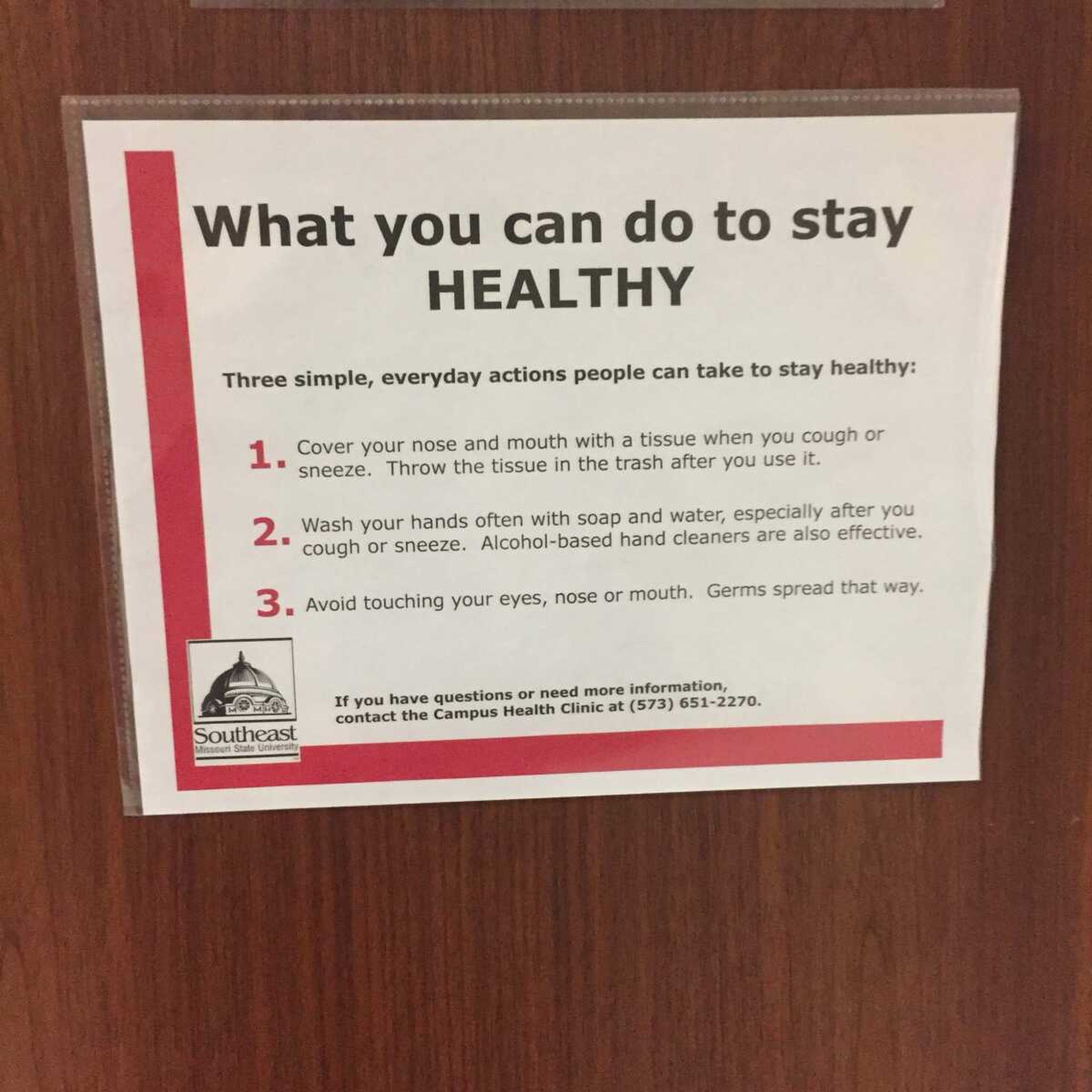Flu season has arrived. The wintertime months mark the flu season, usually beginning in October and ending toward the end of March.
“The biggest thing is good hand-washing,” April Kibble, a nurse practitioner at Southeast’s Campus Health Clinic, said. “It’s spread by respiratory droplets, so typically when people blow their nose, cough or sneeze. You have to be in direct contact with something that has those droplets on it.”
The best practice is to limit contact if someone has those type of symptoms — this would include avoid drinking after them and touching their clothing, Kibble said.
Vaccines also are a tool that should be utilized during flu season. The more people get vaccinated, the less likely the flu will spread, Kibble said. The vaccine provides a lesser chance of catching the flu or having milder symptoms if one does catch the flu.

People in close spaces are most likely to catch the flu.
“We see it go through offices, classrooms and daycare centers,” Kibble said. “Any time when people are in prolonged contact in close proximity to each other.”
Kibble recommend that if one does start experiencing flu-like symptoms they should start taking over-the-counter meds and visit the Campus Health Clinic. Flu-like symptoms could include fever, sore throat, body aches and chills.
To contact the Campus Health Clinic, call (573) 651-2270.




